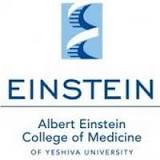Safety of Acidform Lubricant in HIV-Uninfected Women
| Status: | Recruiting |
|---|---|
| Conditions: | HIV / AIDS |
| Therapuetic Areas: | Immunology / Infectious Diseases |
| Healthy: | No |
| Age Range: | 18 - 50 |
| Updated: | 11/30/2013 |
| Start Date: | February 2009 |
Safety of Acidform Lubricant (Amphora) in Women at Low Risk for HIV-1 Infection
Topical microbicides, substances that kill microbes, are being studied to prevent sexual
transmission of HIV and other disease pathogens. In the future, topical microbicides may be
applied vaginally to prevent both acquisition and transmission of HIV and other sexually
transmitted infections (STIs). The purpose of this study is to compare the safety of daily
applications of Acidform lubricant and HEC gel in healthy women at low risk for HIV
infection and assess the effect of a microbicide candidate on the natural immunity women
have to STI pathogens.
A new approach to HIV prevention currently being studied is the use of topical microbicides.
This study will measure the mucosal response to daily intravaginal applications of Acidform
lubricant and HEC gel in two groups of healthy women at low risk for HIV infection.
The duration of this study for each participant is 3 weeks. Study participants will be
randomly assigned to one of two study groups. Group 1 participants will apply Acidform
lubricant twice daily for 14 consecutive days between menses. Group 2 participants will
apply HEC gel for 14 consecutive days between menses.
After screening and study entry, study visits will occur on Days 7, 14, and 21. Study entry
will occur 2 to 6 days following the menses and within 45 days of screening. Medical and
sexual history, a pelvic exam, cervicovaginal lavage sample collection, blood collection,
vaginal pH testing, STI testing, and adverse effect reporting will occur at all visits.
Cytobrush collection, vaginal swab, and cervical biopsy will occur at selected visits. All
participants will be asked to complete a diary throughout the study; this diary will be
reviewed at all study visits. A Pap smear will be obtained at screening if documentation of
a negative Pap smear result within the last year is not available.
Inclusion Criteria:
- Normal menstrual history with regular cycles and with a minimum of 21 days between
menses
- Low risk for HIV/STI infection. More information on this criterion can be found in
the protocol.
- Agree to abstain from vaginal and anal intercourse and to not use vaginal products
within 48 hours prior to study entry and for the duration of the study
Exclusion Criteria:
- HIV-infected
- Menopausal
- Currently using hormonal contraception or have used hormonal contraception within 2
months of study entry
- Menstruating at screening or enrollment visits
- Urinary tract infection at screening
- Positive chlamydia, gonorrhea, or trichomonas result at screening
- Abnormal Pap smear
- Clinically detectable genital abnormality. More information on this criterion can be
found in the protocol.
- Currently participating in a research study of other vaginal products
- History of intermenstrual bleeding within 3 months prior to study entry
- Previous gynecologic surgery or have received treatment for syphilis, genital herpes,
chlamydia, gonorrhea, trichomonas, or genital warts within 6 months prior to study
entry
- Received treatment for Candida, bacterial vaginosis, or urinary tract infection
within 1 month prior to study entry
- Have douched or used vaginal products, including lubricants, feminine hygiene
products, vaginal drying agents, and sex toys within 48 hours prior to study entry
- Vaginal or anal intercourse during the 48 hours prior to study entry
- Oral antibiotics within 7 days of study entry
- Pregnant, less than 6 months postpartum, or breastfeeding
We found this trial at
1
site
Albert Einstein College of Medicine The Albert Einstein College of Medicine of Yeshiva University is...
Click here to add this to my saved trials
